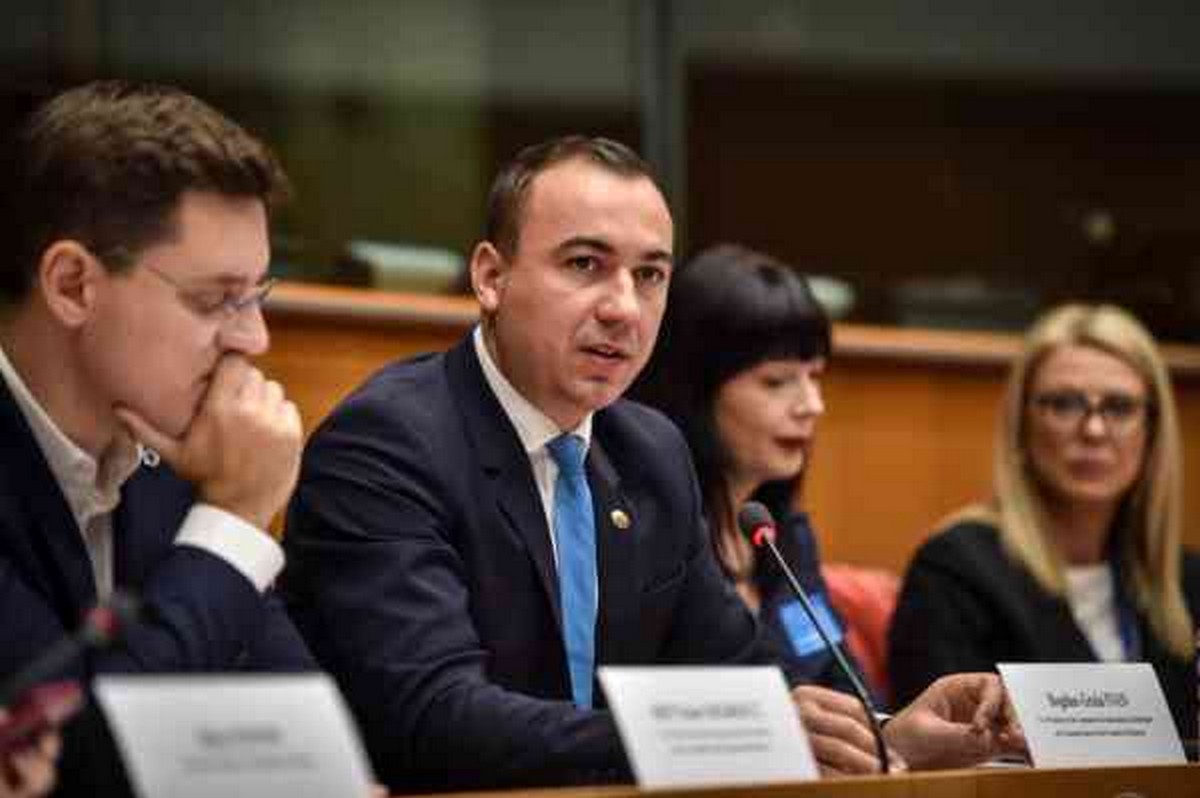The labour market is changing due to automation, and it is important to make sure that no one is left behind, Minister of Labour, Family, Youth and Social Solidarity Simona Bucura-Oprescu said on Tuesday at the Digital Innovation Summit Bucharest (DISB) 2025.
„I believe that, for each of us, adjusting to new technologies is a real challenge. From the cybersecurity vulnerabilities that each of us have due to or because of, it depends on how we look at these challenges, to the devices we use to the systemic needs that the Romanian administration, the central public administration or the local administration have. It is obvious that digital transformation processes are and must be a facilitator, the way to improve our public services, so that for beneficiaries, for Romanians, their use is easier and just a click away (…) To me, as the labour minister, digital progress must concur with the changes in the labour market, the changes that relationships between people, starting from the labour market, generate and cyber-attacks, online harassment or abuses in the digital environment can bring. At the same time, it is very important that the transformations in the digital environment have people at the centre, so as to help us live better, support vulnerable categories and improve social policies. I believe that using technology, to make life better, safer and easier for all of us, is essential. The labour market is changing because of automation, and it is important to make sure that no one is left behind,” said Bucura-Oprescu.
According to the minister, the Labour Ministry has released and is implementing several digital transformation projects that improve public services and streamline internal processes.
„Reges Online is a new platform that replaces the Revisal system for real-time management of employment contracts by interconnecting national databases. Reconect is a mechanism for anticipating the demands of the labour market, a platform developed by our colleagues from ANOFM, which helps correlate education with the requirements of the labour market. The minimum inclusion income is a social programme launched in January 2024, which brings together several forms of social aid in a unitary system and for the first time in Romania’s history, with the obligation of employment. That is, you cannot receive the minimum inclusion income indefinitely. You have to go to the county employment agencies, you have to try forms of professional training, so that these Romanians are not held captive and reach the labour market. Also, they cannot receive the minimum inclusion income if they do not send their children to school, so that through education we can give wings to children.”
The minister also mentioned the service hub of the Ministry of Labor, an IT system that will interconnect the databases from all institutions in Romania, from the local and central public administration, so that a single flow segmented into 12 streams of interests can capture all life events.
„The digital transformation of the National House of Public Pensions includes the release of a new system and the development of a benchmark application through which pensioners can access both their pension slips and other services from the virtual private space of each of the insureds. Also, the development of digital skills, through which we promote guides and programs for adapting the workforce to the new digital requirements, as well as the guide to digital skills for the labour market and the future national framework dam. com.ro,” said Bucura-Oprescu.
ICI Bucharest organises, between April 8 and 11, a new edition of the Digital Innovation Summit Bucharest (DISB) event. This year’s edition brings together over 200 speakers from more than 30 countries to Parliament Palace in Bucharest.
AGERPRES




